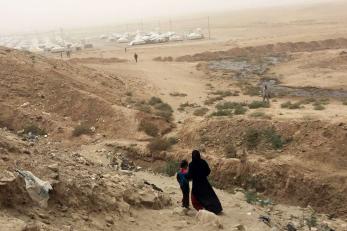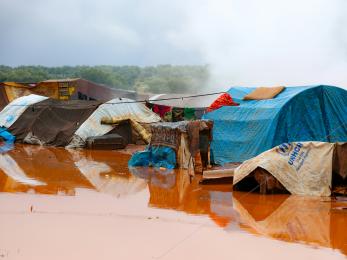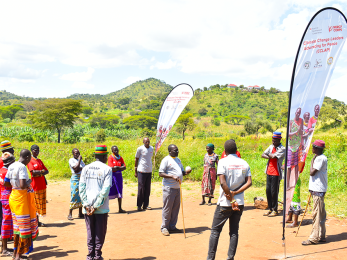Towards Durable Solutions to Displacement
Understanding Social Acceptance of Returnees in Post-ISIS Iraq

Read the executive summary ▸
Read the full report ▸
Since the government of Iraq declared victory over the Islamic State (ISIS) in 2017, it has made the return of internally displaced persons (IDPs) to their home areas a priority. Numerous barriers remain, however, and as a consequence, nearly 1.2 million IDPs have not yet returned. While some of the barriers to the sustainable return and reintegration of IDPs relate to humanitarian needs, a major impediment is a lack of social acceptance of returnees. Individuals and communities have refused to welcome or live alongside returnees who they perceive, rightly or wrongly, as being supporters of ISIS or complicit in its atrocities. This is a particular challenge in Iraq’s ethnic and religious minority communities, which were systematically persecuted by ISIS.
These issues threaten to prolong Iraq’s displacement crisis, exacerbate intergroup tensions, and trigger revenge attacks and further fighting. Understanding the factors that drive social acceptance of returnees is therefore crucial not only for ending displacement, but also for building social cohesion, promoting reconciliation, and preventing future conflict in Iraq.
To this end, Mercy Corps conducted a survey of more than 500 Yazidi households in Sinjar and IDP camps in Duhok governorate to explore the conditions under which they were more or less likely to accept returnees. We find that:
- Returnees’ movement patterns during ISIS rule shape their social acceptance more than ethno-religious identity. In an experiment that randomly varied characteristics of a hypothetical male returnee, survey respondents were nearly 50% less likely to accept returnees who did not flee ISIS and instead stayed in their communities and lived under its rule, regardless of the returnee’s ethno-religious identity.
- A sense of shared victimhood under ISIS makes Yazidis, especially men, more likely to accept Sunni returnees. Yazidi men who were exposed to an “inclusive victimhood narrative”—one that emphasized the shared suffering of their community and Sunni communities— accepted Sunni returnees at a higher rate (52%) than those who were not exposed to this narrative (38%). Yazidi women respondents, however, were much less likely to accept Sunni returnees, and exposure to an inclusive victimhood narrative had a much smaller effect on acceptance (15%, compared to 9% for women who were not exposed to an inclusive victimhood narrative). This highlights important gender differences in social acceptance of returnees.
- Yazidis who were displaced with Sunnis and interacted with them more frequently were more likely to accept them into their communities. This may indicate the importance of intergroup contact, which many conflict management interventions aim to facilitate, in influencing social acceptance of out-group returnees. These results also potentially reinforce the effects of shared suffering. Interviews with community leaders suggest that Yazidis who were displaced with Sunnis may have observed the hardships they endured directly, increasing feelings of empathy and solidarity—possibly making these respondents more sympathetic to Sunni returnees.
These findings suggest that even among a heavily persecuted population in a highly polarized sectarian environment, it is possible to improve the prospects of social reintegration and peaceful coexistence through restorative justice and trauma-informed peacebuilding. This research has important implications for donors, policymakers, and practitioners seeking to facilitate durable solutions to displacement, support survivors of violence, and contribute to stability in Iraq.

